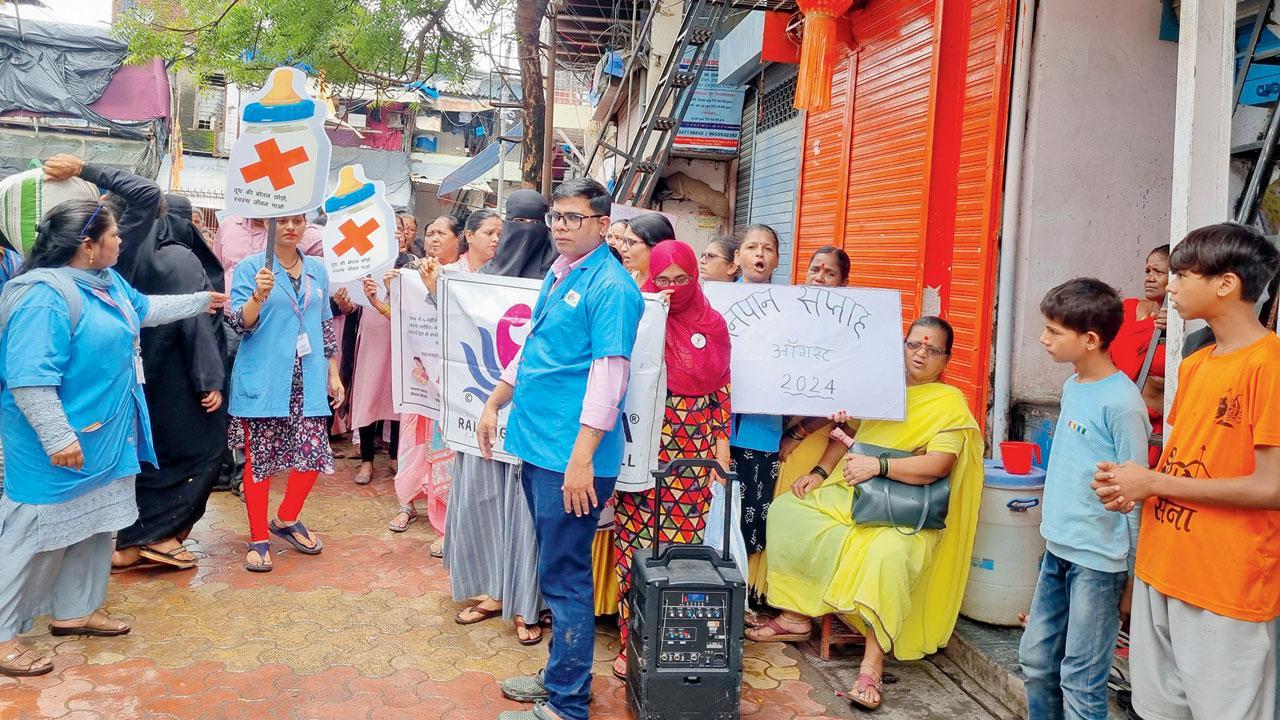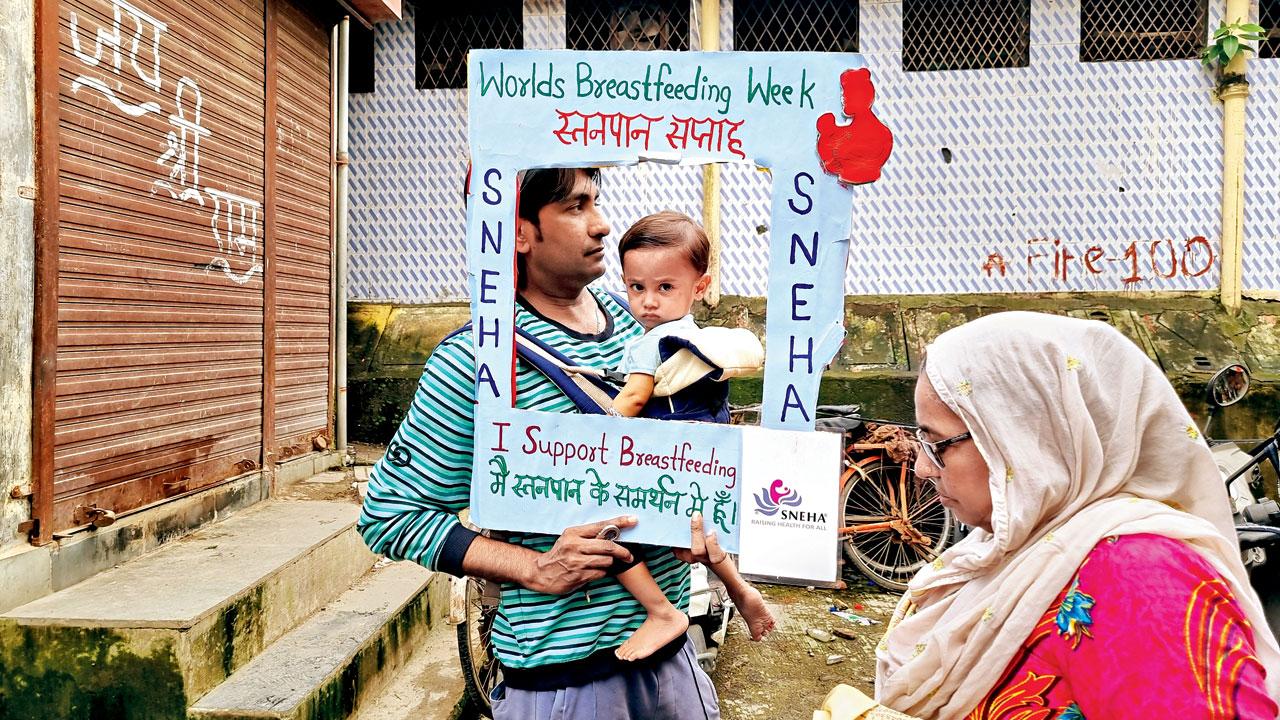Handful of such facilities in city help feed newborns who are born preterm and infants who have their mothers undergoing treatment elsewhere

Health workers take out a rally in support of breastfeeding in the slums of Antop Hill on Wednesday
In the slums of Antop Hill, thirty to forty women marched on Wednesday, shouting slogans like ‘Stop those milk bottles and save a life’ aiming to raise awareness about the benefits of breastfeeding within the community.
Globally, the first week of August is observed as Breastfeeding Week. The rally was organised by volunteers from the NGO Sneha. “Even today, there are many myths in the community about breastfeeding, and people turn to formula milk, which is not only expensive but also harmful to the health of a newborn,” said Shrikant, programme manager at Sneha.

A father and child promote breastfeeding as part of a drive organised by NGO Sneha
Formula-fed infants, as opposed to breastfed ones, are at higher risk of infections like necrotising enterocolitis (NEC), especially if they are premature. Furthermore, formula feeding increases their risk of respiratory infections and potential long-term complications.
Asked why formula milk is still used in the area, one common response was that mothers often cannot produce milk. “Milk banks are available but usually only in large hospitals. Most women give birth in small private hospitals, and doctors are quick to prescribe formula milk. They are not directed to the milk banks,” said a community health worker with the NGO.
Another reason for dependence on formula milk, said Shalini Shetty, associate director maternal health at Sneha, is the prolonged work hours. “Women in the community face a time crunch to breastfeed even when they’re able to. In that case, we can’t link them to milk banks.”
Milk banks
The establishment of Asia’s first milk bank in 1989 at Sion Hospital is credited to Sneha’s founder, Dr Armida Fernandez, who was the dean of the hospital at the time, along with Dr Jayashree Mondkar, head of the department of neonatology. In the years following, the concept expanded to other BMC-run facilities. In 2014, the concept was introduced at Nowrosjee Wadia Maternity Hospital. Even today, there are just over 90 milk banks across the country.
According to Dr Forum Shah of Wadia Hospital, the slow expansion of milk banks is due to their noble but costly nature. “There is no buying or selling involved,” she said. The significant costs associated with setting up and maintaining milk banks deter private sector investment. “Hospitals must cover expenses for manpower, and the maintenance equipment is expensive,” Dr Shah noted.
There are only a few milk banks in the city. Once women are counselled and come forward to donate milk, it is tested, pasteurised, and then dispensed as needed. “Many women who deliver at Wadia have comorbidities and are unable to produce milk. Sometimes, the mother may be admitted elsewhere while the baby is at Wadia. Such cases benefit significantly from the milk bank, reducing the risk of infection for newborns,” Dr Shah said.
Of the 150 babies in Wadia's Neonatal Intensive Care Unit (NICU) daily, at least 50 per cent require milk from the milk bank. In the ten years since its establishment, the hospital has managed to collect an average of 700 litres annually. There are 4,000 to 5,000 annual deliveries at Wadia, with 40 to 50 per cent of these being preterm. “Exposure to anything other than breast milk can be life-threatening for preterm infants,” Dr Shah noted.
This situation is also prevalent in civic hospitals with high incidences of preterm babies. Dr Anitha Ananthan, head of KEM’s neonatology, observed that nearly 30 per cent of babies born at the hospital are preterm. Last year, the hospital recorded 4,960 deliveries. “Among the preterm infants, the incidence of necrotising enterocolitis is very low because the hospital has its own human milk bank,” she added.
700
Litres of milk collected annually at Wadia Hospital milk bank
 Subscribe today by clicking the link and stay updated with the latest news!" Click here!
Subscribe today by clicking the link and stay updated with the latest news!" Click here!










